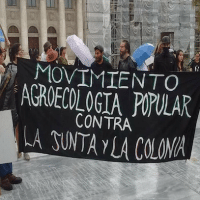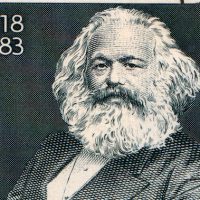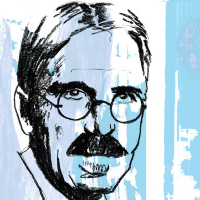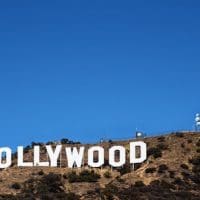-
Venezuelanalysis: official statement on facebook’s removal of our page
Venezuelanalysis is the only independent English language website covering news and analysis on Venezuela from a progressive perspective & which platforms leftist grassroots voices. It is run by committed journalists, authors and academics & praised by renowned journalists and intellectuals such as Noam Chomsky, John Pilger, Marta Harnecker and Oliver Stone.
-
Fredric Jameson and Film Theory
Fredric Jameson is among the most prominent theorists of postmodernism and one of the foremost Marxist critics of his generation. In Postmodernism, or the Cultural Logic of Late Capitalism (1991), film occupies a central place in his account of the formal features of postmodernism and in his analysis of the relationship of postmodern culture to the social and economic forms of “late capitalism”.
-
A reserve army of reporters
Capitalists profit from the misery of both those who are unemployed and those who are lucky enough to be working full-time but seeing their work hours increase, their benefits diced, their wages cut. This very much describes the state of modern journalism in 2018.
-
Fascist mob storm socialist bookshop in broad daylight
About a dozen fascists stormed into the bookshop close to the shop’s closing time, attempting to intimidate staff and customers as they destroyed books and materials.
-
Social Imperialism in the 21st century
A sober analysis of the positions of Owen Jones and Paul Mason on a wide range of issues shows that they are in fact distinctly un-radical, frequently opportunist in nature, and (particularly in Mason’s case) openly reactionary and imperialist.
-
Reading Marx on migration
If any specter is most clearly haunting the wealthiest states of the world today, it is the specter of nativism. It has become a tired cliché to recount the number and nature of political forces that have risen on the strength of fear of the migrant other, real or imagined.
-
U.S. fake World War 2 history underlies permanent bipartisan hostility toward Russia
There’s fake news. And then there’s fake history. Fake news lies about the world as it is. But fake history is the context for fake news. Fake history sanctifies abominations past and present. Fake history erases the struggle over thousands of years between those many who produced the planet’s wealth and the greedy few who appropriate it for themselves.
-
Recommended reading from Mumia
The nation’s best known political prisoner, Mumia Abu Jamal, has high praise for historian Robin D.G. Kelly’s book Hammer and Hoe: Alabama Communists During the Depression.
-
Gender as colonial object
The spread of Western gender categories through European colonization.
-
Agroecology in Puerto Rico
The movement for people’s agroecology seeks to empower the peasantry of the island through encouraging collectivism and cooperatives.
-
It’s been over a year since MSNBC has mentioned U.S. war in Yemen
Why is the No. 1 outlet of alleged anti-Trump #resistance completely ignoring his most devastating war?
-
UK police to arrest Julian Assange
Britain is doing Washington’s dirty work and given the heavily increased ‘political chatter’ on Assange’s fate–it is quite likely the British government is looking for public reaction to be muted enough to simply arrest him, go through the motions and send Assange to certain solitary confinement on death row.
-
Freedom rider: Ocasio-Cortez and the left
Alexandria Ocasio-Cortez is a living Rorschach test for leftists. Her primary win over incumbent Joseph Crowley in a New York City congressional district is impressive on many levels. But the reaction to her victory demonstrates the sad state of affairs of left wing politics in this country. The contradictory responses from people who are otherwise […]
-
The New Postcolonial Economics with Fadhel Kaboub
In this episode, we speak with Fadhel Kaboub (@fadhelkaboub), associate professor of economics at Denison University and President of the Global Institute for Sustainable Prosperity. Fadhel outlines a new critical approach to postcolonial political economy, arguing that re-gaining financial sovereignty is a crucial next step for postcolonial nations hoping to achieve social, economic, and environmental justice.
-
Love me I’m a liberal – updated for Trump
Phil Ochs’s song “Love Me I’m a Liberal” updated with some of my own words since the election of DJT.
-
Transformation problem unraveled
Moseley’s interpretation establishes the internal coherence of Marx’s theory, thereby creating a more solid basis for its further development on our own, Marxist, terms. Stated differently, there is no need to import unrealistic, abstract-ideal concepts from other economic theories in an attempt to “modernize” Marxist economics.
-
Ocasio-Cortez’s win: opportunities and challenges for the left
Ocasio’s victory in the Democratic primaries is a sign of increasing openness to socialism among U.S. voters. The left may squander the opportunity revealed by her win if the wrong lessons are drawn.
-
Willetts the Conqueror (part 6) – Academic freedom
Today, academic freedom is increasingly under threat from marketisation, in particular as a result of the mutually reinforcing pressures on academics to meet instrumental, neoliberal economic objectives, imposed from above via national-level performance management systems–the TEF, REF and KEF–and from below through local-level, bureaucracy-heavy managerialism.v
-
Why Venezuela reporting is so bad
Review of Alan MacLeod’s Bad News From Venezuela
-
From the news media to Hollywood, powerful elites control the messages the masses receive
IN EARLY May the Disney blockbuster Avengers: Infinity War took over $1 billion from box offices around the world.


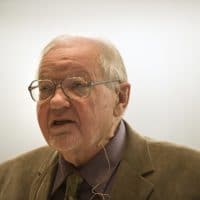


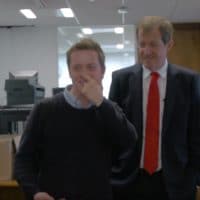

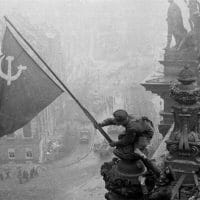
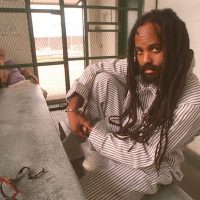
![By Architect of the Capitol - Architect of the Capitol information webpage [1], Public Domain, https-::commons.wikimedia.org:w:index.php?curid=1365273](https://mronline.org/wp-content/uploads/2018/07/By-Architect-of-the-Capitol-Architect-of-the-Capitol-information-webpage-1-Public-Domain-https-commons.wikimedia.orgwindex.phpcurid1365273-200x200.jpg)
